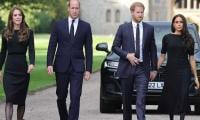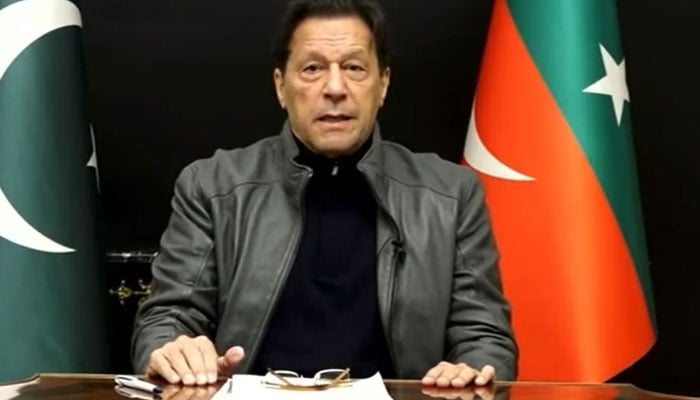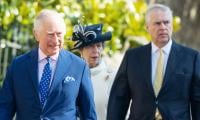Imran Khan faces two legal setbacks
Imran Khan faced two legal setbacks on Thursday when his appeal against the ruling of Election Commission of Pakistan (ECP) was dismissed by the Islamabad High Court (IHC)
ISLAMABAD: Former prime minister and Chairman Pakistan Tehreek-e-Insaf (PTI) Imran Khan faced two legal setbacks on Thursday when his appeal against the ruling of Election Commission of Pakistan (ECP) was dismissed by the Islamabad High Court (IHC).
Also, a one-judge bench of the IHC formed a larger bench for hearing a petition, seeking disqualification of Imran Khan for not mentioning “his daughter Tyrian Jade White” in his nomination papers.
The IHC dismissed PTI’s petition against the ruling of the ECP on the prohibited funding case, saying that it was “premature” at this stage.
“...we find that this petition is premature and not yet ripe for adjudication. The petitioner has been issued a show-cause notice to answer the tentative findings re-breach of the law recorded in the fact finding report,” the judgment mentioned.
In August 2022, the election commission issued a show-cause notice to the PTI after it concluded — based on the fact-finding report — that the party received funding from prohibited sources. The notice was later challenged in the IHC.
A larger IHC bench, comprising Chief Justice Aamer Farooq, Justice Miangul Hassan and Justice Babar Sattar, had reserved its verdict on January 11 after arguments were completed.
The judgment read that Khan had the right to raise all its objections to seek corrections or reversal of findings recorded in the report, including by raising any jurisdictional objections before the ECP during the show-cause proceedings with regard to findings recorded in excess of its authority.
“...the ECP would be under an obligation to consider all factual and legal assertions with an open mind and decide the same through a reasoned order in accordance with the law and without being interested in reaffirming the findings in the [...] report or otherwise seeking to produce any predetermined outcome.”
The court mentioned that as the report is tentative and would only be formalised after PTI is given a “fair opportunity” to record its statements, it is “not inclined to judicially review the preliminary findings regarding the truthfulness of the certificate furnished by Chairman PTI in terms of Article 13(2) of the PPO”.
The high court also said that it is within the realm of possibility that the show-cause notice may even be withdrawn if PTI satisfies the ECP that it received no prohibited funding.
The court said it is confident that as repositories of public authority in a country sustained by rule of law, the ECP and the federal government will not act in disregard of the rights of PTI and its chairman as guaranteed by the law and the Constitution.
“In the event that PTI is aggrieved by the final decision rendered by the ECP after conclusion of the show-cause proceedings, the petitioner would be at liberty to avail appropriate remedies under the law, including the remedy of seeking judicial review before a constitutional court, if so advised. We dismiss the instant petition accordingly for being premature.”
Separately, the IHC chief justice formed a larger bench for hearing a petition, seeking disqualification of PTI Chairman Imran Khan for not mentioning “his daughter Tyrian Jade White” in his nomination papers. Chief Justice Aamir Farooq heard the case, filed by Sajid Mehmood, claiming that Imran Khan did not disclose his daughter in nomination papers and affidavits, filed by him for contesting elections. The petitioner sought Imran Khan’s disqualification under Article 62(i)(f) of the Constitution.
As the IHC chief justice resumed the hearing, the counsel for Imran Khan, Salman Akram Raja, was not present in the courtroom. His associate lawyer informed the court that Salman Raja skipped today’s proceedings as he had to appear in Supreme Court (SC) in another case. He told the court that Imran Khan had submitted his reply in the Tyrian White case through his counsel Salman Raja.
The IHC chief justice said that Imran Khan, in his reply, had contended that he was no more a parliamentarian. He remarked that the notification denotifying Imran Khan as the MNA would be sought from the ECP. The chief justice noted that an objection was also raised against the IHC’s bench hearing this case. He remarked that he had not recused himself as one of the judges, hearing the same case in 2018 [filed by Abdul Wahab Baloch] on personal reasons, instead, the petitioner had then prayed to the court to fix the case before a certain bench. “It is an established law that a judge who has once considered it improper to proceed with a matter on account of personal reasons, may not then entertain the same matter,” Imran Khan’s written reply said.
Imran’s counsel urged the court to adjourn the hearing of the case till March.
In his reply submitted through lawyer Salman Akram Raja, the PTI chief contended that the Islamabad High Court (IHC), while exercising constitutional jurisdiction, could not examine any affidavit issued by him as he had already resigned as member of the National Assembly (MNA).
He maintained that the IHC could not proceed in this matter as he had already ceased to be a member of the parliament. The lawyer said that the ECP had de-notified his client after he resigned from the National Assembly seat. Associate lawyer for Imran Khan, Salman Abuzar Niazi, said they respect the judge and they had just presented some information.
IHC CJ Aamir Farooq adjourned the hearing for Feb 9 and decided to form a larger bench in the case.
-
 China Cuts Anti-dumping Duties On Canadian Oil Imports After Final Trade Decision
China Cuts Anti-dumping Duties On Canadian Oil Imports After Final Trade Decision -
 Prince Harry, Meghan Markle Make Major Change To Strategy To Please Royal Family
Prince Harry, Meghan Markle Make Major Change To Strategy To Please Royal Family -
 Chester Bennington’s Mental Health Story And Lasting Legacy
Chester Bennington’s Mental Health Story And Lasting Legacy -
 John Cusack Gears Up To Give Fans Exciting Surprise On Late-night Television
John Cusack Gears Up To Give Fans Exciting Surprise On Late-night Television -
 Yerin Ha Opens Up About Shocking Diagnosis Post ‘Bridgerton’ Season 4
Yerin Ha Opens Up About Shocking Diagnosis Post ‘Bridgerton’ Season 4 -
 Meghan Markle, Harry Leave King Charles, Prince William Furious With Latest Move
Meghan Markle, Harry Leave King Charles, Prince William Furious With Latest Move -
 NASA Announces New Artemis Moon Mission Aimed At Expanding Astronauts’ Exploration Efforts
NASA Announces New Artemis Moon Mission Aimed At Expanding Astronauts’ Exploration Efforts -
 Everything To Know About Justin Bieber's Facial Paralysis
Everything To Know About Justin Bieber's Facial Paralysis -
 Morgan Stanley Predicts AI To Replace Tasks Not Workers
Morgan Stanley Predicts AI To Replace Tasks Not Workers -
 Anthropic Dario Amodei Calls White House Response ‘retaliatory’ In AI Safety Dispute
Anthropic Dario Amodei Calls White House Response ‘retaliatory’ In AI Safety Dispute -
 Tia Mowry Breaks Silence On Angelina Jolie Asking 'unbelievably' Personal Question: 'Wilder'
Tia Mowry Breaks Silence On Angelina Jolie Asking 'unbelievably' Personal Question: 'Wilder' -
 Savannah Guthrie Speculations 'sadly' Coming True About Mother Nancy
Savannah Guthrie Speculations 'sadly' Coming True About Mother Nancy -
 Trump Administration Warns Of Slow Payouts For Tariff Refunds Amid Intensifying Trade Disputes
Trump Administration Warns Of Slow Payouts For Tariff Refunds Amid Intensifying Trade Disputes -
 Princess Beatrice 'far From Comfortable' After Father Andrew's Arrest
Princess Beatrice 'far From Comfortable' After Father Andrew's Arrest -
 Sarah Ferguson’s Dual Cancer Journey
Sarah Ferguson’s Dual Cancer Journey -
 GTA 6 Security: Rockstar Blocks Leaks Ahead Of Launch
GTA 6 Security: Rockstar Blocks Leaks Ahead Of Launch




